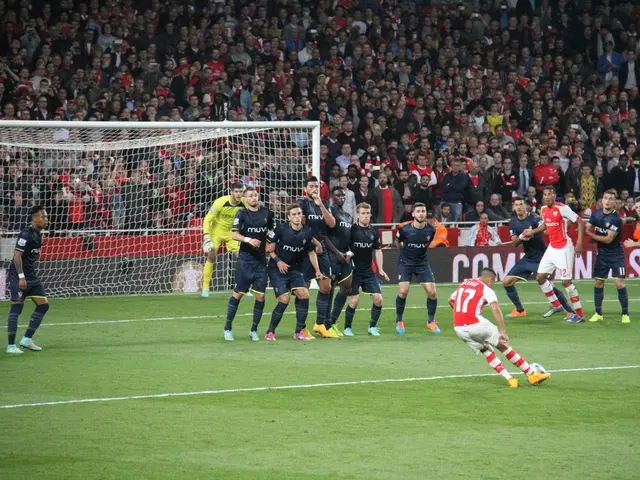The winning party's monetary forces at play
The Art of Gambling and the Dealer's Role
The relationship between a gambler and a casino dealer can be intricate, sometimes harmonious, and other times tense, owing to the varying degrees of respect and dislike that have existed through history and different cultures.
Understanding the Dealer
Picture a dealer as a server at a restaurant - they don't cook the food, but they present it to the customer. Similarly, a dealer doesn't script the game rules or influence the results; they merely facilitate the process. Without managerial approval, a dealer cannot make significant decisions.
The Skilled Dealer's Touch
Although a dealer holds little control over the game's outcomes, an experienced one can occasionally subtly sway the odds, just like a seasoned server who can choose the perfect wine pairing to elevate a dish.
- In roulette, skilled dealers may guide the ball towards a desired number or a near-miss, owing to years of practice.
- In blackjack, a dealer can make card counting more difficult by delicately inserting cuts at strategic moments.
- In poker, a dealer can apply psychology to their advantage, purposely slowing down play to provoke players into hasty decisions.
While it's unreasonable to challenge a dealer's actions, it's wise to maintain cordial relations with casino staff to ensure a pleasant gaming experience. Altercations could distract you, compromising your focus and enjoyment. Remember, dealers are merely doing their job, like everyone else in the casino.
The Dealer's Rewards
Winning against customers isn't necessarily advantageous for dealers. Their remuneration varies depending on the establishment, but it's typically not contingent on the game's results to avoid bias. Dealers earn a base salary and pocket tips. Sometimes, generous tips can even outweigh their official income.
However, certain casinos tie a dealer's salary to the venue's earnings. In such instances, dealers may feel compelled to be diligent and demanding towards the patrons, as their livelihood depends on the casino's revenue. When tips are shared with the establishment, the situation becomes less favorable for the player, as the dealer might actively attempt to cause their loss. In Russia, before casinos were banned, this method of payment was prevalent, leading to a tense dynamic between the dealer and the player.
Modern-Day Dealers at Play
In the grand scheme of things, casino dealers exert limited influence over game outcomes, thanks to strict rules, randomness, and tight regulations. Their salaries chiefly depend on location, experience, and tips, making their role crucial for smooth casino operations. In the end, it's essential to remember that while dealers can impact the game subtly, it's all part of their job to keep the fun alive in the fascinating world of gambling.
Fun Fact: In Las Vegas and other major gambling hubs, it's common for dealers to rely on their charm and wit to make a significant amount in tips, sometimes earning as much as double their base salaries.
- Dealer's actions at the table can influence the game subtly, such as a skilled blackjack dealer making card counting more difficult by strategically inserting cuts.
- In casino culture, dealers are often as significant in the gaming experience as the games themselves, with their personalities and performances contributing to the overall atmosphere.
- In roulette, a skilled dealer may guide the ball towards a desired number or a near-miss, owing to years of practice and experience.
- Modern-day dealers' salaries primarily depend on location, experience, and tips, making their role crucial for maintaining smooth operations in the casino-and-gambling world.








